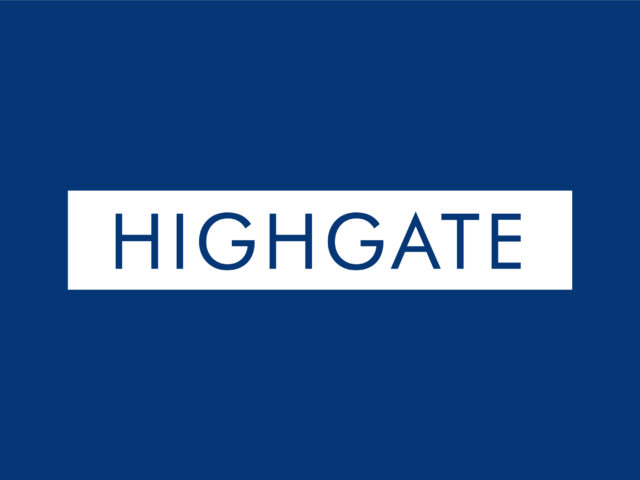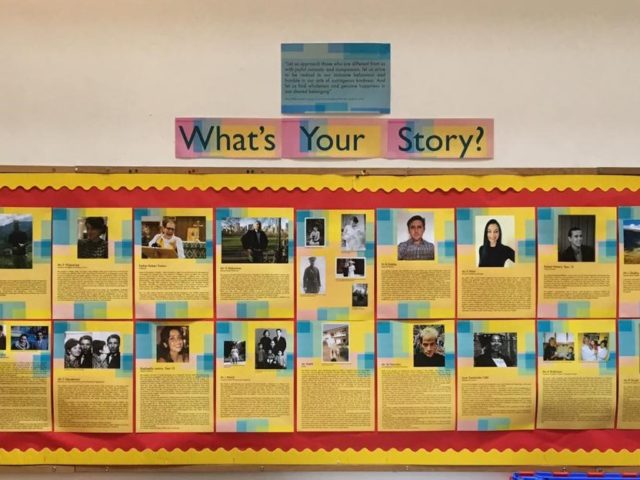I haven’t yet read Engines of Privilege: Britain’s Private School Problem by David Kynaston and Francis Green (it comes out in February), but I was diverted by Kynaston’s article about his book in The Guardian: he (and his book) come across as measured and thoughtful, and he invites genuine dialogue which steers clear of grandstanding. While he levels some criticism at grammar schools, he is most concerned by the effect of private schools, such as Highgate, on social mobility.
The Monday before Kynaston’s article, Highgate’s teaching and support staff enjoyed their annual ‘away day’ (hitherto called ‘in-service training day’ or ‘Baker Day’ for those with memories stretching back to the 1980s) at the London Academy of Excellence Tottenham (LAET). LAET is our sibling school in East Haringey which, with the support of Tottenham Hotspur Football Club and a number of London private schools, we helped set up in 2017. Their second cohort of Year 12s were locked away doing mocks but their Year 13s were in vocal and lively evidence. It was, we all agreed, a masterstroke to fuse our two common rooms for a day of discussions and talks, and to hear from some of our eight Highgate colleagues who have chosen to work at LAET. Seconding teachers is the principal way we have supported LAET, in addition to governance (four LAET governors are either Highgate governors or members of our Senior Team). Not only does this make the budget work (Highgate’s secondments ‘save’ LAET £200,000 pa) but it embeds the Highgate experience and academic DNA in the classroom itself.
Act 1: Jan Balon, LAET’s Headteacher, welcomes us, and reminds us of the academy’s demographic: LAET is situated in Northumberland Park, a ward in the top 2% of highest deprivation in the country; 60% of pupils’ postcodes show they come from the lowest of fifteen categories (’struggling estates’ and ‘difficult circumstances’) according to the demographic segmentation tool, Acorn; and 1% of Tottenham’s young people go to Russell Group universities, compared with 18% in the west of Haringey. He admits to scepticism when he first heard of the partnership (Jan’s experience of private schools was limited to his assisted place at a London independent school; a Teach First graduate, he taught in Tottenham and Edmonton before becoming LAET’s founding headteacher). Yet, four terms in, he was now the strongest convert to partnership between LAET, a state school, and its independent school partners. Without Highgate, without our commitment, without our experience, without our connections and without our resources, LAET could not have come into being or become the school it is.
Act 2: almost eerily, I foresee Kynaston’s criticism: ‘What I am working towards is an articulation that we face a kind of double crisis of confidence in our private school identity. On the one hand, a far-reaching consensus that private schools do more harm than good, that they are unfair and that they are obstacles to social mobility, that they are, at best, an anachronism like honorifics and ermine for members of the House of Lord and, at worst, the means by which an unelected, wealthy, self-seeking elite holds onto power and influence. And, on the other hand, a dawning realisation that securing good mental health and emotional wellbeing in young people (childhood happiness by another name) is incompatible with the way children are raised by parents who can afford to send them to private schools, and that our pastoral routines are no longer fit for these increasingly complex purposes; worse still, that our academic routines may be the source of some of this ill-being and mental ill-health.’ As colleagues wonder if I have reached for the wrong speech, I explain that I don’t believe that these criticisms are justified, but that they would be if we weren’t putting LAET at the heart of what it means to be Highgate.
The state provides about £4,500 per sixth form pupil for their education; an independent school, such as Highgate, has about £20,000 at its disposal. Even deducting the significant element which covers buildings (DfE funding deals with premises separately), private schools, such as Highgate, have much more generous resources to spend on recruiting and deploying staff, on running co-curricular activities, and on specialist services such as careers and university counselling. Leaving aside the arguments about whether we should pay more or higher or different taxes on our income, the system allows parents to spend extra on their children’s education when the state, it can be argued, just isn’t spending enough. It feels unfair to the observer and it certainly is unfair to the teenagers who simply can’t access the level and quality of education which will enable them to apply for wealth-creating, fulfilling employment.
My response is not to attribute blame but to look for solutions and I believe that schools, like Highgate, can choose to be part of the solution, or choose to appear to be, or even actually be, part of the problem.
Some will recall the spat I had with Sir Michael Wilshaw, then HM Chief Inspector (Head of Ofsted) back in 2012, when he accused private schools of offering only ‘crumbs from your table’ to local state schools. My argument was not with what he said – I complimented him on the accuracy of his analysis at the time – but with the examples he took, which included Highgate’s partnership teaching. His officials had picked the wrong target; it was lazy, sloppy research. Any narrative that suggests that Highgate’s sponsoring of LAET (or our bursaries or our other partnerships, which we call Chrysalis) are to meet our public benefit requirement is misplaced – this suggests that it is tokenistic, formulaic, grudging. LAET, Chrysalis and our bursaries are our expressions of this school’s desire, and drive, to make a Highgate-style education available to any and every child suited to it. They are an expression of a commitment to social justice and social mobility. Highgate only makes sense as a school with its bursaries, with Chrysalis and, in particular, with LAET.
The moral argument is clear but the practical argument bears repeating: our vision for education is transformative for all children, regardless of their background. Yet this requires a density of academically-minded graduates to enter teaching and to stay teaching, and for committed, versatile, able support staff to be drawn to education. A school like ours can create this resource, using the influence and generosity and social consciences of its parent support, to make it available to other schools whose pupils need, and deserve, the turbo boost of aspiration and the transformative engineering of private school (or selective school) technique, expertise and culture. I just can’t see how a government, or at least plausible UK governments, are going to be able to do so without us.
This week’s news from Oxford and Cambridge provides some indication of the success of independent–state school partnerships. LAE Stratford, LAET’s older sibling and a school founded thanks to, and supported by, Brighton College, Eton, Caterham, UCS and Highgate (founding Head, one Robert Wilne, a Deputy Head at Highgate) received 26 offers. Harris Westminster, supported by Westminster School, received 37 offers. And, no doubt, another recently-founded free school, the King’s College London Mathematics School, will be announcing similar success (its founding head, Dan Abramson, set up Highgate’s maths partnership as Head of Mathematics here). Such success has even caught the lead writer’s eye in The Times! Harris Westminster’s Head may well be pleased to be giving private schools ‘a run for their money’, and rightly so, but, I’d argue, it’s been the example of independent schools (their ability to recruit graduates suited to the task; their freedom to innovate; their ability to select by proven prior attainment; their insistence on learning beyond exam measures) and their collaboration (mobilising opportunity and connections for their sibling state schools) which have kick-started this galvanising shot in the arm for social mobility and opportunity.
Our collaboration with LAET is in its infancy, albeit a vigorous, fast-growing one. Jan and I see an urgent, powerful need to let the young people dictate, and create their co-owned, co-experienced future so that our cosmopolitan, diverse city becomes a reality, a chimaera of parallel but untouching lives. So I hope the dialogue, which David Kynaston says he wants, includes the voices and views of pupils of LAET and other free sixth form schools, and takes note of the numbers reaching our elite universities from the most deprived communities, thanks to the vision, imagination and commitment of leaders and teachers across private and state schools.

